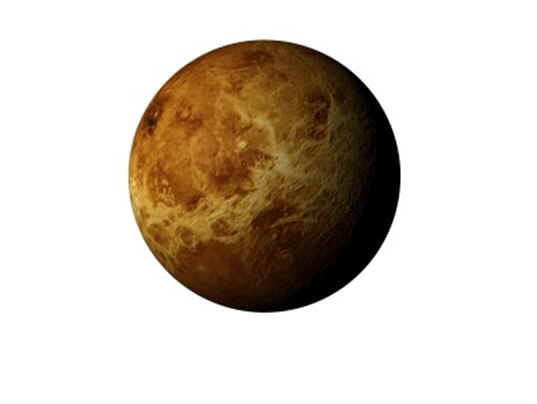
Can Venus Support Life?
Venus can NOT support life as we know it. Living organisms cannot survive on Venus. The planet is toxic to carbon-based life. A thick atmosphere rich with carbon dioxide envelops Venus and creates a greenhouse effect. Clouds composed of sulfuric acid droplets hover over the rocky, ocean-less surface. Air pressure bears down at a force 90 times that of Earth’s, quickly crushing space probes that have managed to land. Water is essentially absent. Surface temperatures escalate to over 880 degrees Fahrenheit, which is hot enough to melt lead. All told, these conditions create a hostile environment in which life as humans know it cannot exist.
Past Life on Venus
Frequently referred to as Earth’s sister planet, Venus closely resembles Earth in the sun’s distance and its size, chemical composition, mass, and density. Although Venus has an inhospitable climate now, some scientists believe that it may have been home to organisms adapted to its unique environment during the Solar System’s infancy. It has been suggested that Venus had water and that life could have existed in closed sub-environments that protected the organisms from harsh surface conditions.
Life in the Clouds of Venus
Despite its extreme surface temperatures and sulfuric acid atmosphere, some scientists supposition that clouds of microbes may inhabit and reproduce in the upper layers of Venus’s atmosphere, where the temperature is closer to Earth’s, and water droplets are present. This idea is shored up by the fact that scientists recently discovered microorganisms living in Earth’s atmosphere. Providing further grounds for the possibility of life in the clouds of Venus, some organisms on earth have demonstrated the ability to adapt to and thrive in highly acidic environments. Nonetheless, Venusian microbial cloud life is in the theory stage, and no proof has yet been presented.